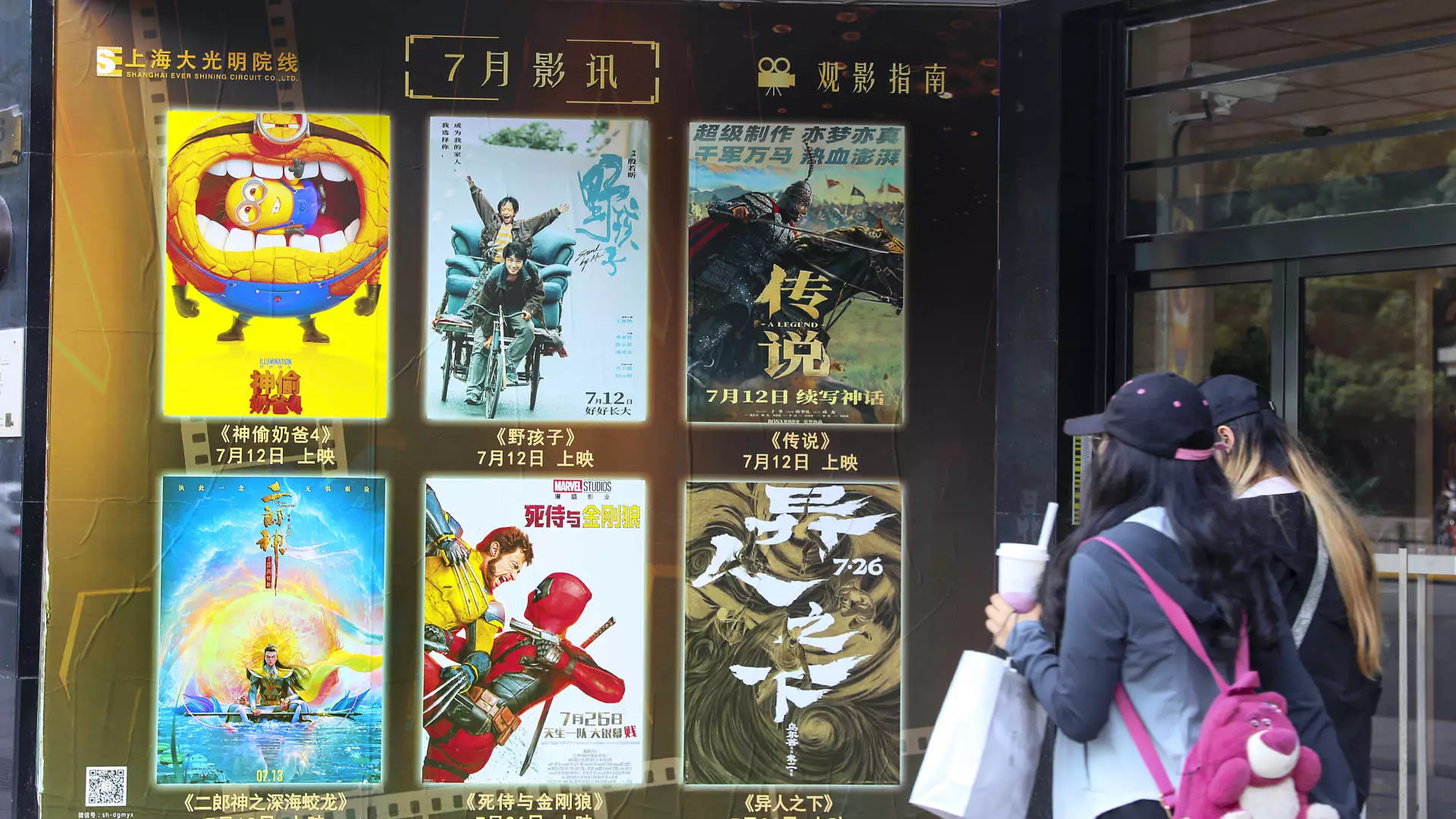Hollywood has long been characterized by its glitzy achievements and culturally influential productions, but a storm is brewing on the horizon; the consequences of President Donald Trump’s trade war with China are becoming increasingly apparent. This tumultuous situation has shifted not just the economics of international filmmaking, but also the very landscape of global cinema. Once, China represented a treasure trove for American cinematic exports, but the fortunes of Hollywood are now in jeopardy. The erosion of this relationship points to a disturbing trend, one that could shape the future of both industries in ways that are profoundly unsettling.
Among the most alarming signs is the rapidly changing dynamic in box office contributions. The lucrative Chinese market has traditionally offered a safety net for U.S. studios, a space where profitability could be projected through impressive ticket sales. However, with Chinese filmgoers increasingly gravitating toward their home-grown content—bolstered by a rise in local production quality—American films are finding themselves on the outer fringes of this burgeoning market. It’s troubling to see that there’s a palpable shift in the cultural conversation as audiences prioritize films that reflect their values and narratives, rather than simply consuming Hollywood blockbusters.
Lowered Expectations and Economic Strain
The expiration of the U.S.-China Film Agreement in 2017 has proved catastrophic for American studios. Ann Sarnoff, former CEO of Warner Bros. Discovery, noted that the Chinese market is now “very challenging.” The barrier to entry has become steeper, and studios are forced to adjust their financial projections accordingly, sometimes omitting the Chinese market entirely. This realization represents a significant shift; no longer can American studios count on China as a reliable source of revenue. The data corroborates this distressing trend, with only a handful of American films generating substantial income abroad, while local productions command the box office.
There is a tangible frustration among Hollywood filmmakers as they grapple with these challenges. As many have pointed out, the favorable rental rates that once buoyed Hollywood’s prospects are dwindling. Consolidated by rising operational costs triggered by the edition of tariffs, American filmmakers are struggling to align budget expectations with the increasingly opaque marketplace. The driving concern is not just about box office returns but the very sustainability of the Hollywood model itself, which has been so heavily reliant on international markets.
The Cultural Isolation of Hollywood
An alarming side effect of this trade war is the cultural isolation of Hollywood from one of its most significant audiences. The reluctance of China to accept more foreign films could spell trouble for U.S. studios that traditionally catered to international preferences. The very essence of filmmaking—a craft synonymous with storytelling that transcends cultural boundaries—seems jeopardized by political machinations. The severe limitations on revenue generation are symptomatic of broader issues surrounding globalization and cultural exchange that resonate throughout art and industry alike.
In the years past, films were crafted to appeal universally, but the reduced opportunities for American films in the Chinese market suggest a discipline in filmmaking that is painfully stunted. The irony lies in Hollywood’s desperation to reach these audiences, leading to increasingly formulaic productions that often ignore the rich tapestry of diverse storytelling. Instead of broadening horizons, this trade war risks funneling creativity into a narrow channel, stifling what has traditionally been Hollywood’s strength: innovation and reinvention.
The Threat of Domestic Domination
China’s ascent as a powerhouse of cinema is not merely an ambitious bid for cultural preeminence; it is symptomatic of a deeper ideological rivalry between the two nations. The staggering success of films like “Ne Zha 2” underscores this dramatic shift. By eclipsing the dollar figures of Hollywood blockbusters, China’s domestic films are redefining what success looks like on a global scale. This emergence not only threatens the economic standing of American studios but also casts doubt on the future of cinematic art as a global cultural exchange.
If American studios fail to reckon with this new reality, we risk settling into a world where Hollywood is sidelined—both financially and culturally. As tariffs escalate and restrictions tighten, it becomes evident that the stakes have shifted. The world watches as Hollywood grapples with its diminishing status, and within that struggle lies the potential for an identity crisis that could ripple through generations of storytelling.

